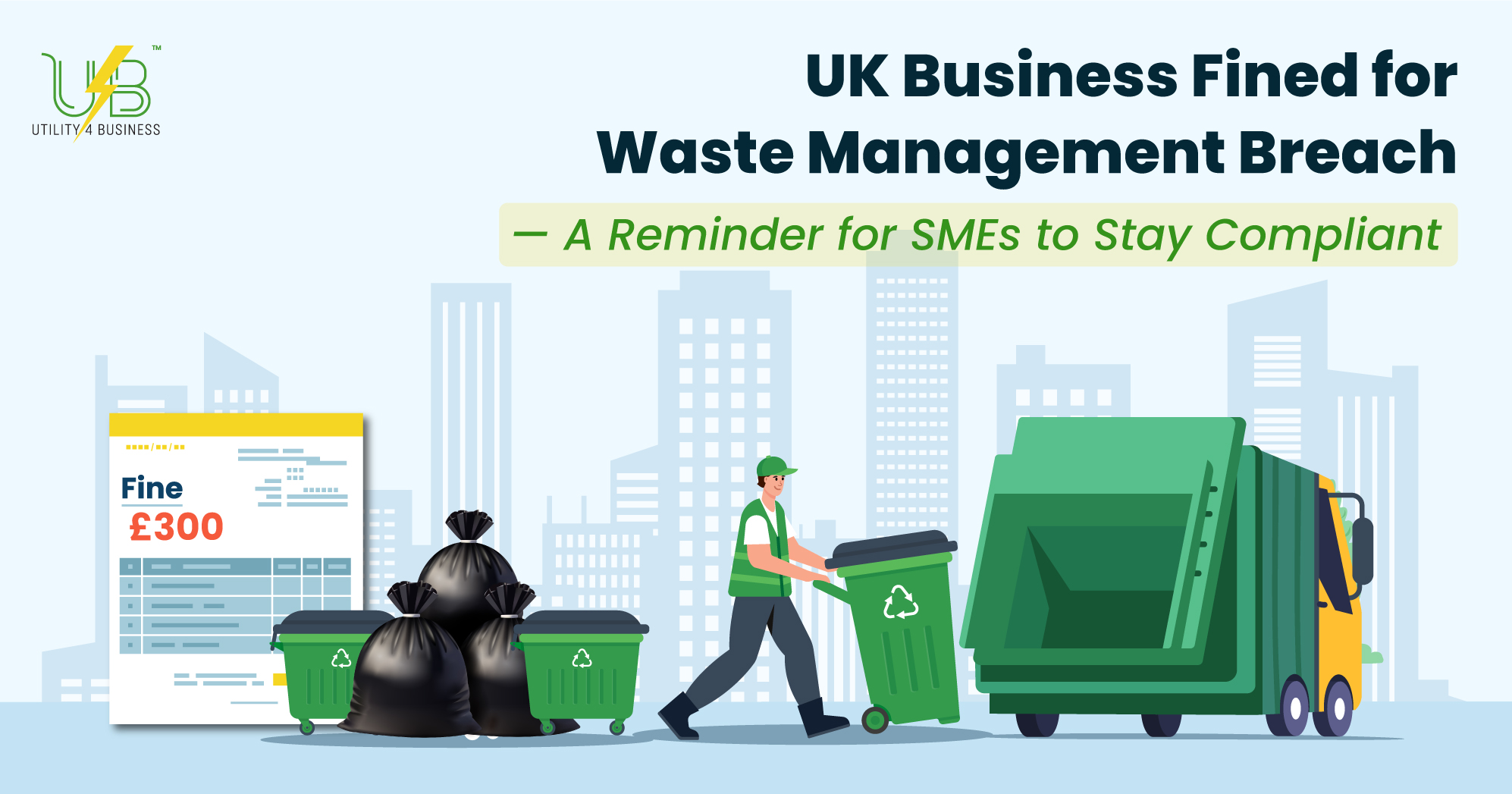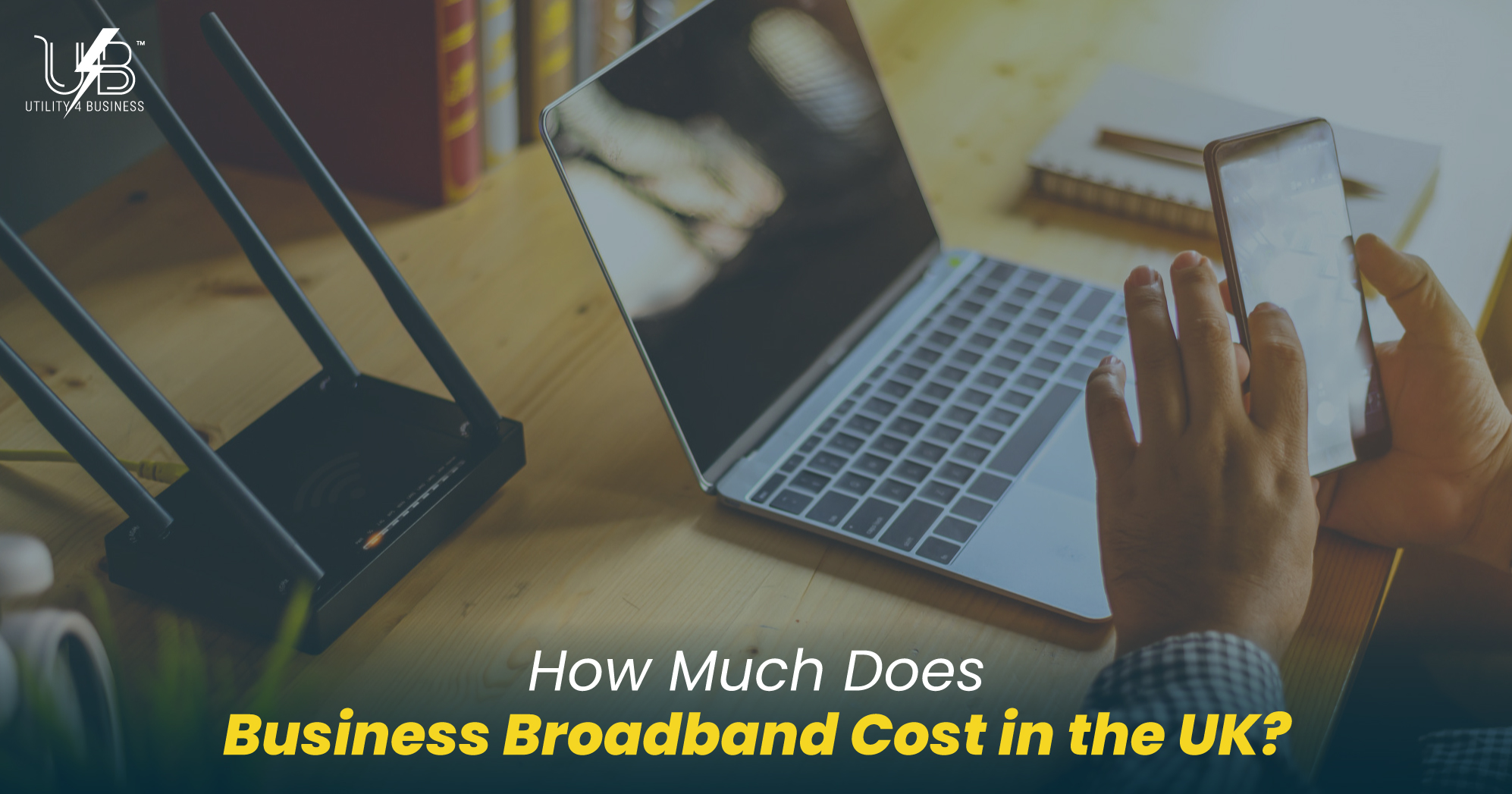Business Electricity: A Comprehensive Guide for UK Businesses
Expert Insights for Commercial Electricity Management

In today’s competitive business environment, it is vital to control operational expenses. Electricity can be a major cost for many businesses. This guide highlights different aspects of commercial electricity in the UK so that you can choose wisely, save on your business energy usage, and keep your expenses within budget.
What is Business Electricity?
Commercial electricity, also known as business electricity, is a type of energy supply specifically tailored for use in commercial and industrial settings. It is different from residential electricity because it caters to higher levels of demand and consumption patterns, as well as the unique requirements of different sectors. Basically, it involves the amount of electricity needed to operate offices, factories, shops, warehouses, and other commercial facilities.
Key Differences from Residential Electricity:
- Higher consumption or usage
- Different pricing structures and rates
- Longer contracts
- More complex metres and invoices
- Tailored tariffs and charges, depending upon usage and needs
- Additional facilities and support for businesses
Benefits of Business Electricity Contracts
There are many benefits of a business electricity contract, including:
- Savings: With these contracts, you can save more money because they allow for bulk purchasing at lower per-unit costs.
- Fixed Rates: Some agreements offer the benefit of having stable prices throughout the period, which helps in planning budgets accordingly.
- Account Management: Business customers get dedicated support from providers who understand their needs better than anyone else does.
- Contract Terms Flexibility: Depending on what one wants, there is an option of signing up for either short- or long-term agreements.
- Green Energy Options: Many suppliers offer tariffs that use renewable resources to satisfy environmentally conscious businesses.
Factors to Consider When Choosing a Business Electricity Provider
It is very important to choose the right business electricity provider. Consider the following factors:
- Pricing System: Understand the unit rates, standing charges, and any extra fees.
- Duration of a Contract: Decide whether you need more flexibility in the short term or stability in the long term.
- Customer Support: Do some research on what kind of reputation the company has when it comes to supporting customers and solving their problems.
- Energy Mix: If sustainability is your top concern, then go for those providers who offer green energy options.
- Value-Added Services: Energy management tools and consultancy services are some additional features that a few suppliers might provide with their products.
- Early Termination Charges (ETCs): Always keep an eye out for ETCs before signing up! They can bite you if you are not careful enough…
- Payment Terms: Choose providers with payment methods that suit your cash flow.
Understanding Business Electricity Tariffs
Business electricity tariffs and rates are not easy to understand. Here’s what you need to know:
- Fixed rate tariffs – charge a set amount per kilowatt hour (kWh) for the duration of the contract.
- Variable rate tariffs – change depending on the market costs of energy at any given time.
- Flexible tariffs – allow businesses to buy their power in advance when it’s cheaper.
- Time of use tariffs – offer different prices for electricity usage during peak and off-peak hours.
- Green tariffs – supply energy that comes from renewable sources like wind farms or solar panels.
- Multi-rate tariffs – have more than one price band, so you can opt to pay one rate for power usage at weekends and another on weekdays.
Knowing about these choices will enable you to select the cheapest tariff based on your usage patterns.
How to Switch Business Electricity Providers
Switching providers can help you get cheaper deals and better services. Here’s how you do it:
- Evaluate Your Current Agreement: Understand what your current contract entails by looking at the terms and conditions, as well as the notice period.
- Collect Data on Usage: Keep track of how much you use in each month, week, or day so that you have an accurate representation.
- Compare Quotes: Reach out to other suppliers for price quotes, but also consider using comparison sites, which can provide multiple offers at once from different suppliers.
- Analyze What They’re Offering: Don’t just compare numbers; consider things like contract terms or additional services provided per package tier until you find one that fits best with what your business needs are right now.
- Choose a New Vendor: Pick whichever supplier seems most suitable after careful consideration based on all the information gathered about them during this process.
- Initiate the Switch: Normally, when switching providers, they will initiate everything, and there’s not much involvement necessary from your side; however, it doesn’t hurt if you push them along every now and then.
- Validate That It Went Through Successfully: Verify that everything is correct, such as plan type, rates, energy provider switch date, etc. because mistakes can sometimes occur even though they are rare, so it is always good practice to double-check these things.
Note: Pay exit fees to change suppliers before your contract ends to avoid any penalties imposed against you.
Energy Efficiency for Businesses
Reducing business electricity usage can benefit you a lot. Here are some business energy-saving methods you could try:
- Do an energy audit – find out where you’re using the most and where you’re being inefficient.
- Change to LED lighting – they use up to 75% less energy than traditional bulbs.
- Buy energy-efficient equipment – look for appliances with eco-friendly energy ratings.
- Install smart building controls – use sensors and timers to optimise heating, cooling, and lighting.
- Educate staff – encourage employees to be mindful of saving energy.
- Keep everything maintained – regular maintenance keeps equipment running at its best.
- Consider on-site generation – solar panels or other renewable technology could reduce your reliance on the grid.
Understanding Your Business Electricity Bill
It is important to understand how to decode an electricity bill to keep costs down. Here are some of the things that you need to know:
- Rate per Unit: It refers to the amount charged by a kilowatt hour (kWh) of electricity used.
- Fixed Charge: This is the daily fee for keeping your connection with the national grid active.
- Total Units Consumed: The number of kWhs consumed during the particular billing cycle or month.
- VAT: Normally 20% for businesses, although lower rates may apply in some cases depending on different eligibility criteria.
- Climate Change Levy (CCL): A tax on energy use that was introduced as part of government measures aimed at reducing greenhouse gas emissions into the atmosphere and promoting sustainable development.
- Metre Number: Refers to your unique supply point identification number (SPID).
Checking your invoice regularly can help you identify unusual patterns of consumption or mistakes during billing.
Smart Metres for Businesses
In the business world, smart metres are getting popular. Some of their benefits are:
- Accurate Billing: No more estimated bills or manual metre readings.
- Real-Time Data: See your usage patterns in real-time and find out where you can save.
- Energy Management: Energy management tools may be included with certain smart metres.
- Time-of-Use Tariffs: More complex tariff structures can be supported by smart metres that record time-of-use tariffs.
- Easier Switching: It is easier to switch suppliers with a simplified process.
The majority of energy suppliers provide smart metres for free to their business customers.
Renewable Energy Options for Businesses
The adoption of renewable energy can improve your brand image and help you achieve corporate social responsibility goals. Below are a number of eco-friendly energy possibilities:
- Green Tariffs: Choose an electricity supplier that provides 100% renewable energy.
- On-Site Generation: Install solar panels, wind turbines, or other renewable technologies.
- Power Purchase Agreements (PPAs): Make direct contracts with renewable generators.
- Carbon Offsetting: Invest in projects that reduce greenhouse gas emissions.
- Renewable Energy Certificates (RECs): Buy certificates to support renewable energy generation.
Managing Multiple Sites
Energy management can be complicated for businesses and enterprises that have multiple locations. To handle such scenarios, here are some ideas:
- Centralised Procurement: Bargain for more affordable prices by putting together the amount used across all sites.
- Contracts for Multiple Sites: There are suppliers who provide contracts specifically designed for businesses with multiple locations.
- Energy Management Systems: Utilise software programmes to monitor and control usage on every site.
- Standardised Policies: Introduce uniform practices for saving energy in all places.
- Benchmarking: Compare the performance of various places to recognise the best strategies and point out the areas for improvement.
Business Electricity During COVID-19 and Beyond
Due to the pandemic, the energy usage of almost every business has been affected. In such situations, keep an eye on the following considerations:
- Contracts That Work Around: Find a provider who will offer more adaptable terms with all such uncertainties.
- Remote or Hybrid Work Impact: Change up your electricity plan if you’ve started working from home or using a flex schedule.
- Support by the Government: Keep up-to-date on any business-helpful programmes they might have in place concerning business utilities.
- Consumption Changes: Re-evaluate your energy needs to note down the potential changes in your operations and energy usage.
- Future Planning: Think about how potential shifts to your business model could change what you’ll need in terms of electricity down the line.
Electricity Market Trends and Future Outlook
Understanding market trends is beneficial for long-term energy planning because:
- Increasing Renewable Generation: The UK is increasingly building more renewable sources of power.
- Smart Grid Development: The smart grid will allow electricity to be distributed in a more efficient manner.
- Energy Storage: Better energy storage systems could open up new business models in the future.
- Electric Vehicle (EV) Integration: Businesses have to think about electric vehicle charging stations.
Conclusion
Keeping track of your electricity usage and needs can help you keep your business costs intact. Understanding the market, selecting the right business electricity suppliers and rates, taking energy-saving measures, and keeping up with the latest trends can help businesses get the best business electricity deals and save money on electricity bills. Remember that energy management is an ongoing effort, and you must re-evaluate your plan on and off to ensure it meets the objectives of your enterprise within the allocated budget.
This guide covers everything about understanding and managing business electricity in the UK. Always seek advice from professionals or use comparison sites to find the best business electricity solutions tailored to your business.
Are You Ready to Save On Your Business Utilities? Compare the prices of different business utilities today and see how much more your business could save by partnering with Utility4Business. Visit our website or reach out to us at 0800-058-4297.
Find This Article Helpful? Share It Now!
At Utility4Business, we offer top-notch customer support and business utility solutions for businesses across the UK. Consider sharing this article and helping others discover how our expertise can add value to their business success.

Read Our Latest Posts
Explore our latest blog posts and learn how Utility4Business can support your business growth with tailored utility solutions and services. Stay ahead of the curve with the latest information from industry experts and take advantage of our user-friendly comparison services to find the best business deals.


Get Connected
At Utility4Business, our team of experts can help you figure out the highest-value business utility deals that will help your business grow over time.


